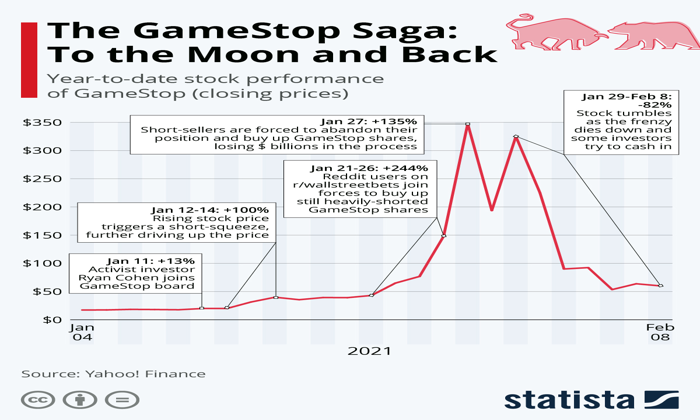Stablecoin legislation is becoming a hot topic in the U.S. as lawmakers like Senator Elizabeth Warren express growing concerns over recent proposals in Congress. Amid the swirling debates, Warren accused former President Donald Trump of using the Financial Innovation and Technology for the 21st Century Act (FIT21) to further his financial interests, particularly with the launch of his new stablecoin project. This controversy highlights potential debanking issues that could arise from legislation that may benefit influential figures such as Trump and Elon Musk at the expense of everyday consumers. As the market continues to grow, with over $238 billion in stablecoins currently in circulation, the need for clear cryptocurrency regulation has never been more pressing. As key players and regulators grapple with the implications of these developments, the future of stablecoin legislation remains uncertain and critical for the industry.
The regulation of digital currencies, particularly stablecoins, is increasingly capturing the attention of both Congress and the public. As discussions around blockchain assets broaden, figures like Senator Elizabeth Warren are questioning the motives behind various legislative proposals, including the FIT21 bill. Known as a vocal critic of cryptocurrencies, Warren has highlighted potential conflicts of interest and consumer risks tied to high-profile cryptocurrency projects associated with political figures. With the stablecoin ecosystem expanding rapidly, attracting significant investments, it becomes crucial to establish robust frameworks to ensure stability and trust in these financial instruments. As stakeholders from various sectors converge to find solutions, the dialogue surrounding digital asset legislation is paramount for shaping the future of financial innovation.
Elizabeth Warren’s Critique of Stablecoin Legislation
Senator Elizabeth Warren (D-MA) has vocally criticized the current stablecoin legislation, particularly the Financial Innovation and Technology for the 21st Century Act (FIT21), which is advancing through Congress. Warren’s concerns stem from her belief that the bill could be exploited by influential figures like former President Donald Trump, who is launching his own stablecoin, USD1, through his decentralized finance project, World Liberty Financial. She highlights the potential dangers of allowing such individuals to control digital assets, indicating that the legislation might prioritize their financial ambitions over consumer protection.
Warren’s accusations highlight a distrust in the motivations behind the FIT21 bill, suggesting it could enable a ‘grift’ benefiting wealthy individuals at the expense of ordinary consumers. Her stance serves to reflect a broader skepticism regarding cryptocurrency legislation, particularly among lawmakers who fear it could lead to increased market manipulation by prominent figures. The critical discourse surrounding stablecoin legislation underscores the ongoing debate about how to regulate cryptocurrencies effectively while safeguarding public interests.
The Role of Trump in Cryptocurrency Regulation
The involvement of Donald Trump in the cryptocurrency space has raised eyebrows, particularly with his aspirations to shape the regulatory landscape for digital assets. Trump has called for straightforward regulations that would govern stablecoins and enhance market structures, seeking to position the U.S. as the ‘crypto capital of the world.’ However, Warren’s critique draws attention to the potential conflicts of interest and the implications for consumer protection which could arise from Trump’s initiatives in the cryptocurrency domain.
As Trump promotes his stablecoin and decentralized finance projects, concerns grow about transparency and accountability in the crypto market. Warren’s push for stricter regulations as part of the FIT21 legislation aims to establish a clear framework that can prevent exploitative practices from individuals like Trump and Elon Musk, who have significant influence in the sector. The evolving landscape of cryptocurrency regulation underscores the tension between innovation and the necessity for stringent oversight.
Debanking Issues: A Call for Collaboration on Solutions
During a recent Senate hearing, Senator Elizabeth Warren emphasized the pressing issue of debanking, where major financial institutions have allegedly denied services to cryptocurrency industry leaders. Warren’s shift in tone signifies a potential willingness to work alongside her political opponents, including Trump and Senate Republicans, to address the debanking crisis. She argues that it is crucial to protect entities participating in the rapidly evolving cryptocurrency landscape while ensuring their fair access to banking services.
Warren’s advocacy for collaboration aims to navigate the complexities of cryptocurrency regulation while promoting inclusivity. The efforts to combat debanking are part of a broader commitment to supporting innovation and consumer protections within the digital finance space. Addressing debanking issues also aligns with overall regulatory efforts to establish a safer and more equitable environment for cryptocurrency users.
FIT21 Bill: Implications for Cryptocurrency Regulation
The Financial Innovation and Technology for the 21st Century Act (FIT21) aims to create a comprehensive regulatory framework for digital assets in the United States. This legislative move is critical as it seeks to delineate clear guidelines for stablecoins and cryptocurrencies, potentially influencing how these assets are managed and overseen by government authorities. As discussions advance, representatives like French Hill (R-AR) intend to introduce a revised version of the FIT21, welcoming public discourse on its provisions.
The implications of the FIT21 bill stretch beyond mere regulatory compliance; it signifies a crucial step towards understanding the complicated interplay between innovation and regulation in the digital finance arena. By addressing the unique characteristics of cryptocurrencies, lawmakers hope to foster a safe environment for consumers while encouraging innovation. The ongoing debate reflects a recognition that, without proper oversight, the burgeoning market could lead to consumer risks and potential exploitation.
Concerns About the Trump Administration’s Influence in Crypto
The Trump administration’s foray into cryptocurrency raises important questions about policy direction and the motivations behind such involvement. Elizabeth Warren has called for transparency and accountability from figures like David Sacks, Trump’s crypto czar, urging him to clarify any personal financial interests that may conflict with his public service responsibilities. It underscores the growing concern that political figures may wield significant power over emerging technologies for personal gain, which could undermine the integrity of regulation.
Warren’s critical approach towards Trump’s initiatives, including the promotion of his stablecoin, highlights the skepticism towards the blend of politics and crypto. The narrative emphasizes the need for strict governance that prevents power from being concentrated in the hands of few, particularly when it comes to consumer finances. This calls for maintaining a delicate balance between encouraging technological innovation and ensuring ethical standards within the cryptocurrency regulation framework.
Consumer Risks Linked to Cryptocurrency Projects
As new cryptocurrency projects, including those affiliated with Donald Trump and his administration, emerge, so do the risks associated with consumer protection. Senator Warren has voiced her concerns regarding potential conflicts of interest and the vulnerability of average consumers to market manipulation. By questioning the motives behind these new asset launches, like the Trump and Melania meme coins, Warren emphasizes the need for diligent oversight to safeguard the interests of everyday investors.
The rapid expansion of cryptocurrencies necessitates a robust regulatory environment to address various consumer risks stemming from fraudulent schemes and lack of transparency. Warren’s advocacy for regulation serves to highlight both the promises of blockchain technology and the pitfalls that can occur without adequate governance. The dialogue on consumer risks is essential for fostering trust in the digital asset market, ensuring that both innovation and protection work in tandem.
Elizabeth Warren’s Stance on Cryptocurrency Legislation
Senator Elizabeth Warren has emerged as a critical voice in the ongoing discourse surrounding cryptocurrency legislation, signaling her intent to challenge policies she deems harmful to consumer interests. Her vocal skepticism isn’t limited to Trump’s endeavors; she represents a broader call for accountability in the crypto landscape, reflecting the concerns of many who fear the implications of insufficient regulation. Warren’s proactive efforts underscore the necessity for legislators to amplify their focus on consumer protection and market integrity.
By engaging directly with ongoing legislative efforts, Warren seeks to influence the conversation around digital assets, advocating for a framework that adequately addresses emerging risks. Her position on cryptocurrency legislation embodies a commitment to ensuring that regulatory measures do not inadvertently empower those who may exploit these new financial tools for profit at the public’s expense. This dialogue points towards a future where sound regulations can potentially coexist with innovative financial products.
The Future of Stablecoins and Market Structure
Stablecoins, particularly those backed by influential figures like Donald Trump, present unique opportunities and challenges within the cryptocurrency ecosystem. With over $238 billion in stablecoins currently circulating, the market’s dynamics require a thoughtful approach to regulation that preserves innovation while preventing abuse. The ongoing discussions about stablecoin legislation, including the FIT21 bill, aim to offer clarity and a framework that can facilitate responsible growth in this sector.
As the future of stablecoins hinges on effective regulatory measures, it is crucial for legislators to consider the long-term implications of their choices. Establishing a solid market structure will not only protect consumers but also foster confidence among investors and participants in the cryptocurrency market. Ensuring a balance between innovation and oversight will ultimately determine the success and sustainability of stablecoins in the financial ecosystem.
Potential Conflicts of Interest in Crypto
The intersection of politics and cryptocurrency is rife with potential conflicts of interest, as exemplified by Senator Warren’s scrutiny of the ventures associated with Donald Trump. She voiced concerns about individuals within the crypto space, such as Trump’s crypto czar David Sacks, who may stand to benefit personally from crypto legislation. This layer of complexity adds urgency to the call for transparency in how policies are enacted and who they serve.
Warren’s insistence on addressing conflicts of interest aims not just to hold individuals accountable but also to reinforce public trust in the legislative process governing emerging technologies. By highlighting these issues, she advocates for a more ethical approach to crypto regulation, where consumer protection remains paramount amidst the rush of innovation. This narrative compels lawmakers to scrutinize their intentions and the broader implications of their actions in the cryptocurrency realm.
Frequently Asked Questions
What concerns does Elizabeth Warren have regarding the stablecoin legislation supported by Donald Trump?
Senator Elizabeth Warren has expressed concerns that the stablecoin legislation, particularly the Financial Innovation and Technology for the 21st Century Act (FIT21), is being leveraged by Donald Trump to further his financial interests. She believes this legislation could enable Trump and others, like Elon Musk, to gain excessive control over the financial system.
How does the FIT21 bill aim to impact stablecoin regulation?
The FIT21 bill is designed to establish a regulatory framework for stablecoins and digital assets, aiming to improve oversight in the cryptocurrency sector. It is expected to address key issues such as market structures and consumer protections as part of broader cryptocurrency regulation.
What is Senator Elizabeth Warren’s stance on debanking issues related to cryptocurrency?
Senator Warren has acknowledged that debanking, or the practice of financial institutions denying services to cryptocurrency businesses, is a significant issue. She advocates for solutions to prevent this from occurring, indicating a willingness to collaborate across party lines to develop effective legislation.
What did Donald Trump propose regarding stablecoin regulations during the Blockworks crypto conference?
During the Blockworks crypto conference, Donald Trump called for ‘simple, common-sense rules for stablecoins and market structure,’ emphasizing the need for clear regulations as the U.S. aims to become the ‘crypto capital of the world.’
What implications do Elizabeth Warren’s critiques of stablecoin legislation have on future cryptocurrency regulations in the U.S.?
Warren’s critiques of the stablecoin legislation face significant attention in the legislative process, highlighting concerns over conflicts of interest and consumer risks. Her position could influence future cryptocurrency regulations by pushing for more stringent oversight and accountability measures.
How is the Trump administration planning to enhance cryptocurrency regulation through the proposed legislation?
The Trump administration is focused on making the U.S. a leader in cryptocurrency through initiatives such as the creation of a dedicated SEC Task Force. This task force will oversee digital asset regulations and aims to implement clear and effective stablecoin legislation.
What potential conflicts of interest has Elizabeth Warren highlighted concerning cryptocurrencies linked to Donald Trump?
Elizabeth Warren raised alarms about potential conflicts of interest and risks associated with cryptocurrencies tied to Trump, particularly regarding meme coins launched around his second inauguration. She calls for investigations to assess the implications for consumers and national security.
| Key Point | Details |
|---|---|
| Senator’s Criticism | Senator Elizabeth Warren criticized the FIT21 stablecoin bill, accusing President Trump of using it for personal financial gain. |
| Concerns Over ‘Grift’ | Warren characterized Trump’s involvement with the USD1 stablecoin as exploitation for self-enrichment. |
| Call to Action | Warren urges Congress to amend the stablecoin legislation to prevent abuse by financial elites like Trump and Musk. |
| FIT21 Bill Goals | The FIT21 bill seeks to provide a regulatory framework for digital assets. |
| Collaboration with Republicans | Warren expressed willingness to collaborate with Trump and Senate Republicans to address the issue of ‘debanking’. |
| Market Overview | The stablecoin market currently exceeds $238 billion, with Tether (USDT) holding a significant market share. |
| Regulatory Oversight | The Trump administration plans to create a SEC Task Force to oversee digital asset regulations. |
| Allegations and Investigations | Warren and Representative Auchincloss requested an investigation into Trump and Melania meme coins over potential conflicts of interest. |
Summary
Stablecoin legislation has become a focal point of contention in U.S. politics as Senator Elizabeth Warren critiques proposed bills that she believes could benefit powerful interests at the expense of consumers. Her strong stance against perceived personal gains made by figures like President Trump highlights the urgent need for clarity and regulatory oversight in the cryptocurrency space. Moving forward, it is essential for Congress to take decisive action on stablecoin legislation to ensure consumer protection and market integrity.
Stablecoin legislation is currently at the forefront of the cryptocurrency debate in Washington, drawing sharp critiques from U.S. Senator Elizabeth Warren. Recently, she accused former President Donald Trump of leveraging proposed bills, like the Financial Innovation and Technology for the 21st Century Act (FIT21), to further his financial interests. Warren argues that Trump’s venture into the decentralized finance market with his upcoming stablecoin, USD1, amounts to an exploitation of financial regulatory loopholes for personal gain. With the stablecoin market already valued at over $238 billion, Warren’s concerns also delve into potential debanking issues and how they might affect everyday consumers. As the push for comprehensive cryptocurrency regulation intensifies, the implications of legislation like this could shape the future of digital assets in the U.S.
In recent discussions surrounding digital currency regulation, the focus has shifted towards legal frameworks governing stable currencies. These regulations aim to ensure that influencers, including prominent figures like Donald Trump and Elon Musk, do not manipulate financial ecosystems for their own benefit. Legislation, such as the recently proposed FIT21 bill, seeks to clarify the operational structure of these assets while addressing pressing debanking concerns often highlighted by advocates like Senator Elizabeth Warren. As stakeholders in the cryptocurrency realm await further developments, the implications for consumer protection and market integrity remain pivotal topics. The ongoing conversations about how legal statutes could influence the future of stablecoins are critical for both investors and regulators looking to navigate this complex landscape.















